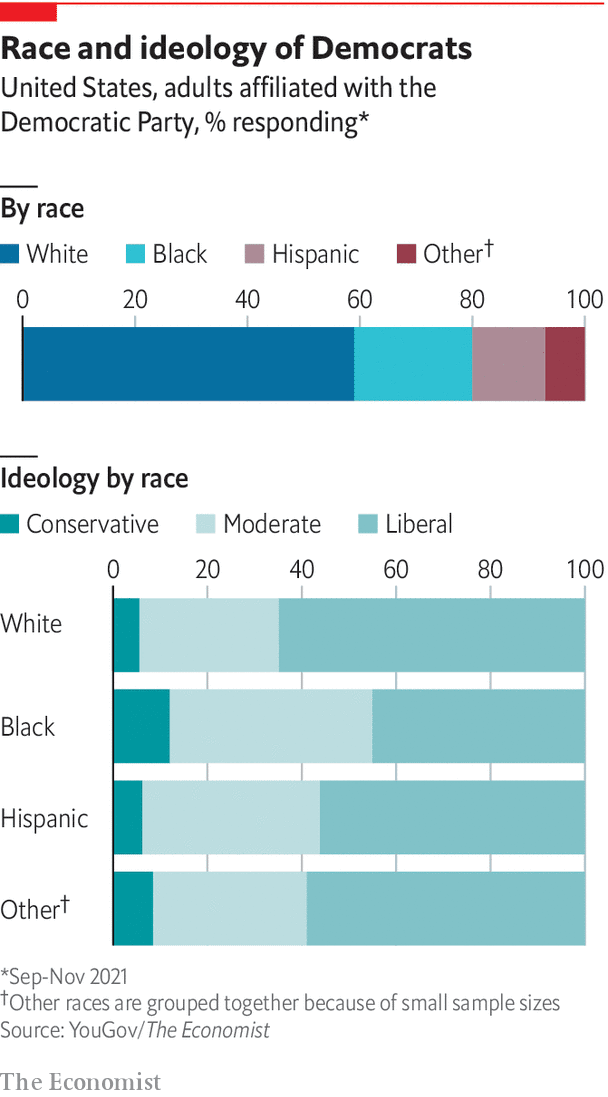Whenever a country turns towords great depression ineconomic front it's obviously brings the questions of races in mainstream Political stage!
The Democrats cannot afford to be seen as an exclusively progressive party

Our Lexington columnist this week looked at the large minority of Hispanic voters who support Donald Trump and his brand of populist conservatism. It is a surprisingly large minority indeed. According to an analysis by Catalist, a progressive political-data firm, Mr Trump won 37% of the Latino vote in 2020—up from his 29% in 2016 and Mitt Romney’s 30% in 2012. If the trend continues, Republicans could soon get levels of support from Hispanics which they haven’t received since George W Bush, who did unusually well with conservative immigrants in Texas and Florida, was president.
Some have speculated that Mr Trump’s performance with Latinos was a one-off. The evidence so far suggests the elevated conservatism of the group has remained. In a poll from YouGov and The Economist this July, 33% of Hispanics said they viewed Mr Trump “very” or “somewhat” favourably. Although a higher share (56%) evaluated him unfavourably, a third is still higher than one might assume given how much the Democratic Party has taken the group for granted over the last decade. Further, when you remove the share of people who said they were “not sure” how they felt, Latino favourability for Trump rises back to the 37% he won in the 2020 election.
Lexington reckons most of the Republicans’ gains with Hispanics came from the success of the party’s campaign against “socialism” on the left, the decreasing salience Mr Trump’s nativism and anti-immigrant rhetoric, and the rising share of Hispanics who see themselves as white. But there is another factor at play.
Over the last two decades, whether someone identifies as liberal, moderate or conservative has become more determinative of their vote. This identity component is distinct from their preferences for spending or the scope of government. While the press often characterizes Cubans, for example, as voting against progressive Democrats because they don’t like their policies, what matters more is that they do not feel those candidates represent their identities or are members of their social groups. And while the Democratic Party was successful in 2012 and 2016 in convincing Hispanics that they were aligned with their racial interests, as those voters have become more aware of their ideological identities, the progressivism of the left has turned them away.
Ideological sorting will be one of the larger burdens for the Democrats over the next decade. Just over half of Latino Democrats call themselves liberals, according to recent polling from YouGov, whereas 38% call themselves moderates and 6% say they are conservatives. A large majority of white and Black Democrats, who make up larger shares of the party coalition, are also moderates or conservatives (see chart). As America’s two major political parties continue to sort themselves along ideological lines, with liberals on the left and conservatives on the right, it will be harder to persuade these centrist and right-leaning Hispanics to keep voting for Democrats based just on their past racial affiliation to the party. When elections are as close as they have been lately, even losing one or two percent of a group’s voters can be devastating.
 | G. Elliott Morris |

Comments